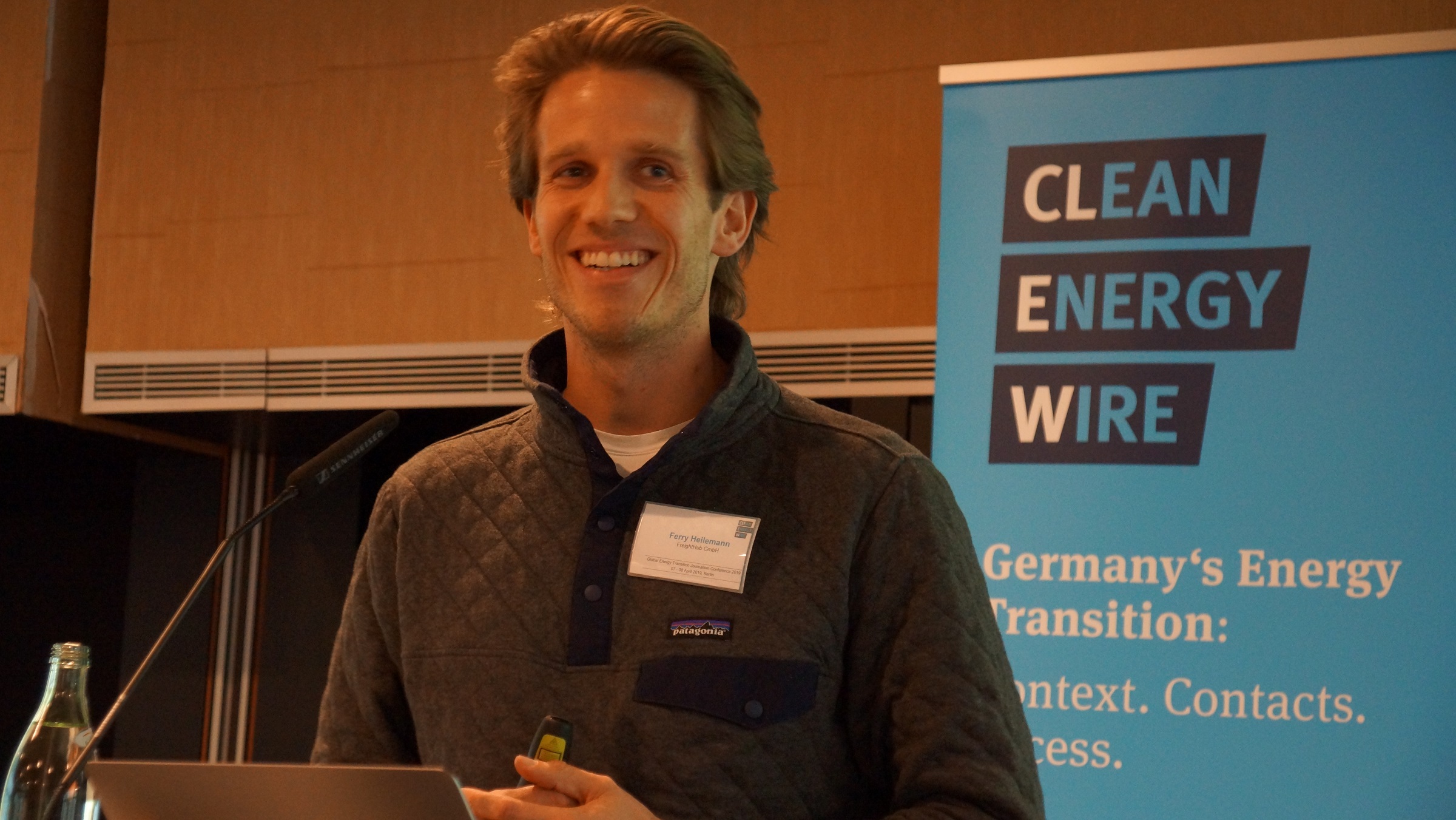
Rose-Anne Clermont is an award-winning freelance journalist writing on migration and environmentalism. Her work has been published by German newspapers Der Tagesspiegel, Berliner Zeitung, Die Zeit, and U.S.-based media including The New York Times, NPR and USA Today. Rose-Anne is currently a freelance editor and trainer for media development projects focused on environmental conservation in East Africa.
Digital freight entrepreneur urges others to 'walk the talk' on climate protection
FreightHub co-founder and German entrepreneur Ferry Heilemann, 32, outlined how he’s cutting back his carbon footprint in his business and personal life at the Clean Energy Wire (CLEW) GETJO19 conference earlier this year, and he also came with his own personal bucket list for journalists who attended the conference, which focussed on the business angles of energy transition reporting:
- Make the climate crisis your number 1 priority
- Don't just inform on the topic and related clash of opinions, also report on ideas for solutions
- Be real, don't support greenwashing campaigns
- Make sure people understand the urgency
- Be hard on fishy politicians
- Reduce your own footprint and change your lifestyle. Lead by example.
Of course, some things on that wish list may need tempering for journalists to adhere to fair and objective reporting. But Heilemann’s demands are based on his own experience – he’s made both a business and a lifestyle of “leading by example”.
We are in an industry that is a significant part of the problem and we have the chance to create change.
"I already optimised my personal and family's lifestyle to the full extent: electric mobility, reduced consumption, renewable energy, less packaging, leveraging my network to create awareness for this cause, optimising our FreightHub office. I am always searching for ways to increase my impact," he says.
Heilemann was only 25 when he and his brother made their first major business deal back in 2011 and sold their online coupon portal, DailyDeal to Google for 114 million dollars. When the business struggled, the brothers bought it back in 2013, made it profitable and re-sold it in 2015. Parallel to this they founded an early stage investment company called Heilemann Ventures. And in 2016, they teamed-up with Erik Muttersbach, Michael Wax and his brother Fabian Heilemann to found FreightHub, a digital freight forwarder.
Along the way, Heilemann said he had an eye-opening moment when eating a burger made with beef from Argentina that did not cost 1 Euro. "I realised that this could not be good and should not be supported. I made a New Year's resolution: no more fast food. I subsequently started reading about CO2 and the climate crisis and I became a vegetarian in a first step," he said.
Heilemann is well aware that the freight business is known for causing lots of emissions: "We are in an industry that is a significant part of the problem and we have the chance to create change.”
He describes his company's internal approach: “On a company level, we have gone to great lengths not only to reduce emissions, waste and energy usage in the first place, but also to offset all emissions we cannot avoid. To give you some examples: we use water dispensers instead of bottles, LED lights instead of normal light bulbs or energy saving lights, rely on organic local food for our catering, go without meat, avoid plastic packaging, equipped the restrooms with reusable hand towels and recycled toilet paper etc. Our travel policy does not allow inland flights and prefers the most efficient mode of transport (e.g. train vs. car). Even our merchandise is fair trade Hoodies from recycled material. We also founded the FreightHub ClimateAction Group to continuously work on further improvements within the company. Emissions we cannot reduce or avoid, we have been offsetting in a partnership with MyClimate, a Swiss NGO, since 2017."
Heilemann also aims to raise awareness with FreightHub’s customers. “On the product and service level, we will start to display CO2 emissions of different shipment options in our quotation engine and hence give our customers the opportunity to take emissions into consideration when choosing their shipment. Next steps include the option to offset shipment emissions directly."

